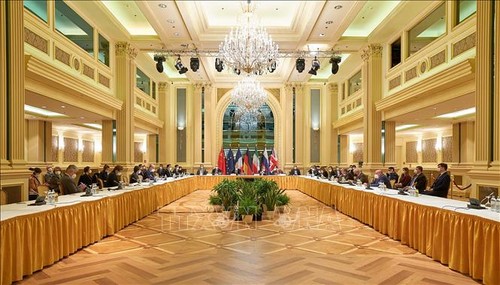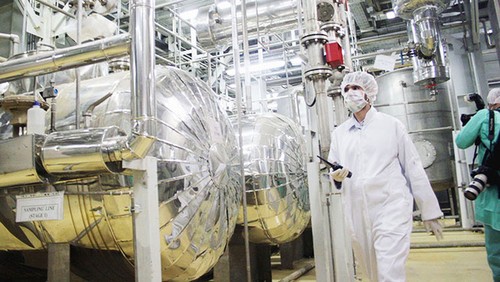 Talks on Iran nuclear deal was convened in Vienna on April 17, 2021 (photo: VNA) Talks on Iran nuclear deal was convened in Vienna on April 17, 2021 (photo: VNA) |
Representatives from the US, Russia, the UK, France, China, and Germany convened the latest round of talks on the Iran nuclear deal in Vienna, Austria, on May 7. The US was not allowed a representative at the meeting because it pulled out of the deal in 2018, so its representatives attended virtually from a hotel in Vienna. This was the 4th round of negotiations brokered by the European Union since April 6th aiming for a full restoration of the deal. The US withdrew from the deal in 2018 and imposed new sanctions on Iran, prompting Iran to begin violating its terms about a year later. Delegates said the initial results were positive, which opened prospects of reviving the deal.
Positive signs
German Foreign Minister Heiko Maas said Monday that the negotiations have been tough but all participants are conducting the talks in a constructive atmosphere.
Iran’s IRNA news agency quoted Deputy Foreign Minister Abbas Araqchi, who heads Iran's delegation to the negotiations, as saying that all parties are serious about reaching a solution. He said the talks have taken place with positive energy. He hopes the parties can reach consensus soon.
One day prior to the talks, a high-ranking US State Department official said the US and Iran can agree on a way to return to the JCPOA in the coming weeks.
Analysts say just holding 4 rounds of talks over the last month shows the determination of all parties to achieve a result.
 A uranium enrichment facility in Iran (photo: AP) A uranium enrichment facility in Iran (photo: AP) |
Challenges
Before the Vienna negotiations, experts said the biggest obstacle was the contrary views of the US and Iran.
The US insists that Iran fully resume its commitments before the US considers removing sanctions. Iran wants the US to lift its sanctions as a prerequisite for Iran abiding by the deal again.
The JCPOA negotiations are influenced by a number of regional issues, including conflicts in Syria, Iraq, the Middle East, and Yemen and the US’s ally relations in Israel and Saudi Arabia.
In addition, Iran’s Presidential election which will be held in June will likely change Iran’s approach to JCPOA. After the election, there will possibly no other negotiations to restore the nuclear deal or the parties will have to start the negotiation all over again.